Search Images
Browse Content (p. 1382)
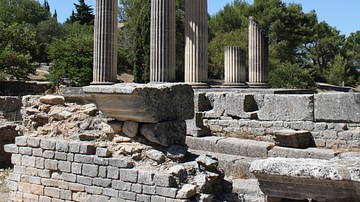
Image
Temple of the Imperial Cult, Glanum
The faithfully reconstructed corner of the smaller of two twin temples dedicated to the imperial cult at Glanum, southern France. c. 20 BCE.

Image
Heated Flooring, Roman Baths at Glanum
A portion of the brick underfloor system (hypocaust) which allowed the rooms of the Roman baths to be heated at Glanum, southern France. 1st century BCE to 1st century CE.
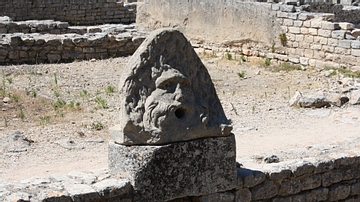
Image
Mask Fountain, Swimming Pool of Glanum
The stone theatre mask fountain (replica) which filled the swimming pool of the Roman baths at Glanum, southern France. 1st century BCE to 1st century CE.
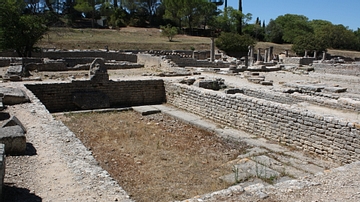
Image
Swimming pool, Glanum
The swimming pool of the Roman baths at Glanum. 1st century BCE to 1st century CE. The pool was filled with water from a theatre mask, a replica of which can be seen here at the far side of the pool.
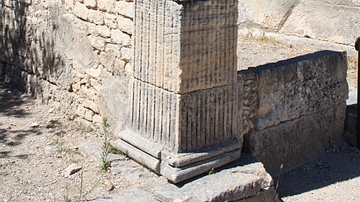
Image
Square Column, Greek-Style House, Glanum
An unuusual square column from the peristyle of a Greek-style house at Glanum, southern France. 2nd-1st century BCE.
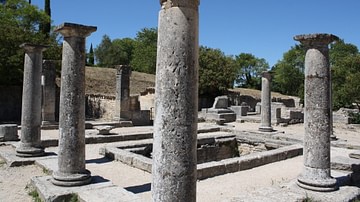
Image
Greek-Style House, Glanum
The peristyle of a Greek-style house at Glanum, southern France. 2nd-1st century BCE.
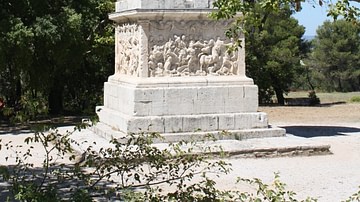
Image
Mausoleum, Glanum
The mausoleum tower at Glanum, which would have once stood alongside many other funerary monuments, dates to c. 40 BCE. It has traditionally been attributed to the three Julius brothers of Julius Caesar’s family but the names (Sectus, Lucius...
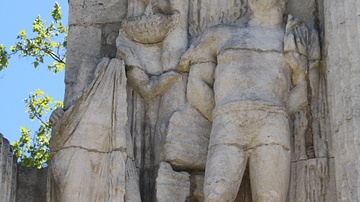
Image
Enslaved Gaul, Arch of Glanum
A detail of the triumphal arch at Glanum, southern France, showing an enslaved Gaul. The monument was built in the early 1st century CE, perhaps to commemorate the city's new status as a Roman colony. The top third is now missing.
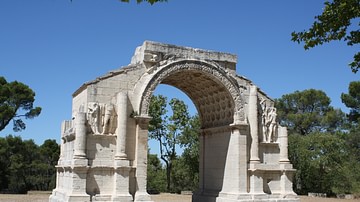
Image
Monumental Arch, Glanum
The triumphal arch at Glanum, southern France. The monument was built in the early 1st century CE, perhaps to commemorate the city's new status as a Roman colony. The top third is now missing but figures remain which depict enslaved Gauls.
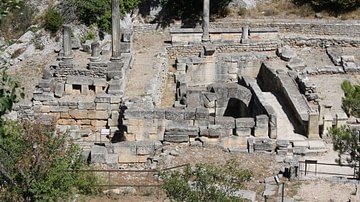
Image
Spring of Glan, Glanum
The sacred spring of the Celtic god Glan at the Celtic-Greek-Roman site of Glanum, France. The well, first built in the 7th century BCE, continued to be visited by visitors seeking healing well into Roman times.